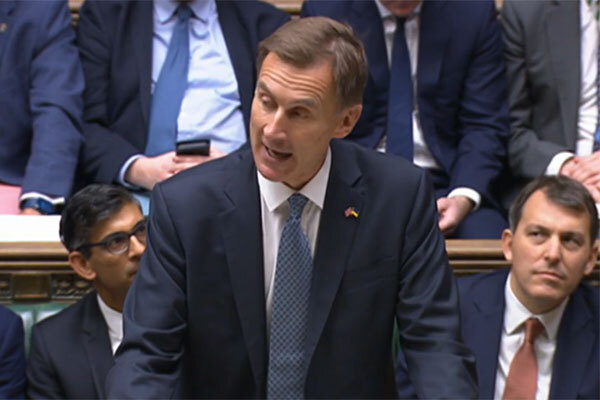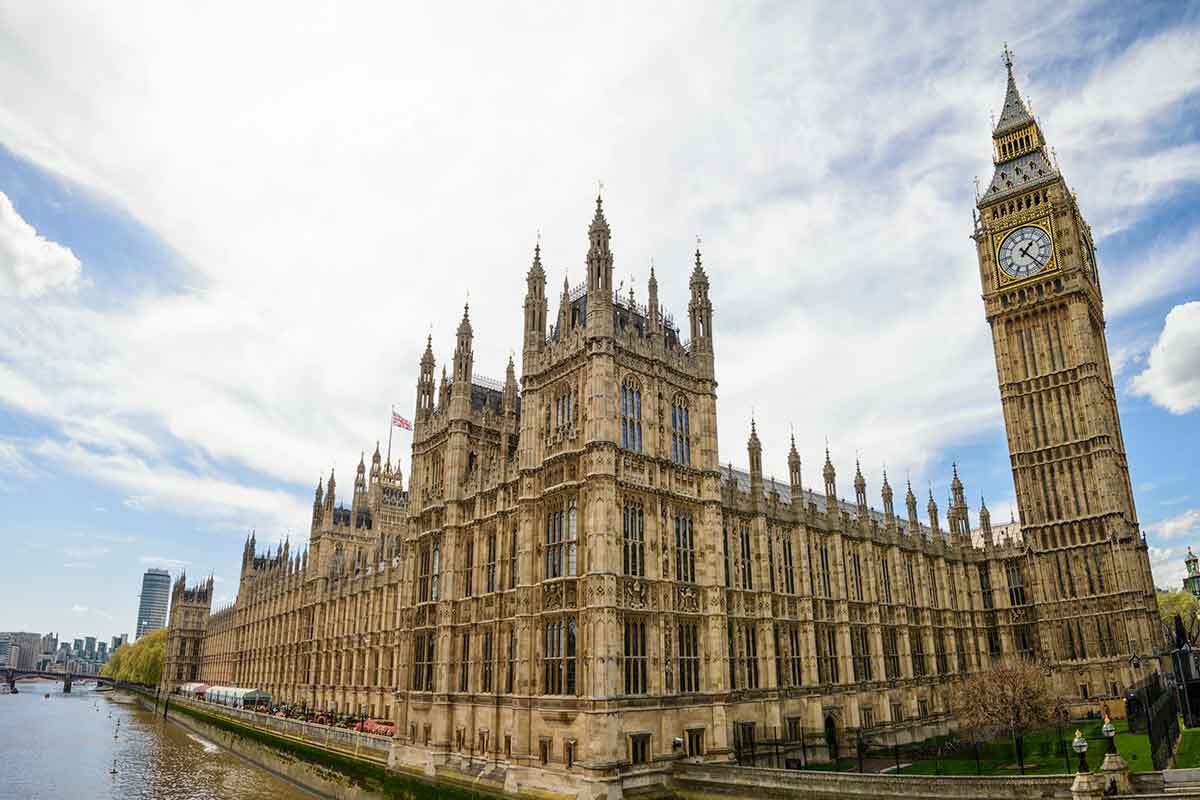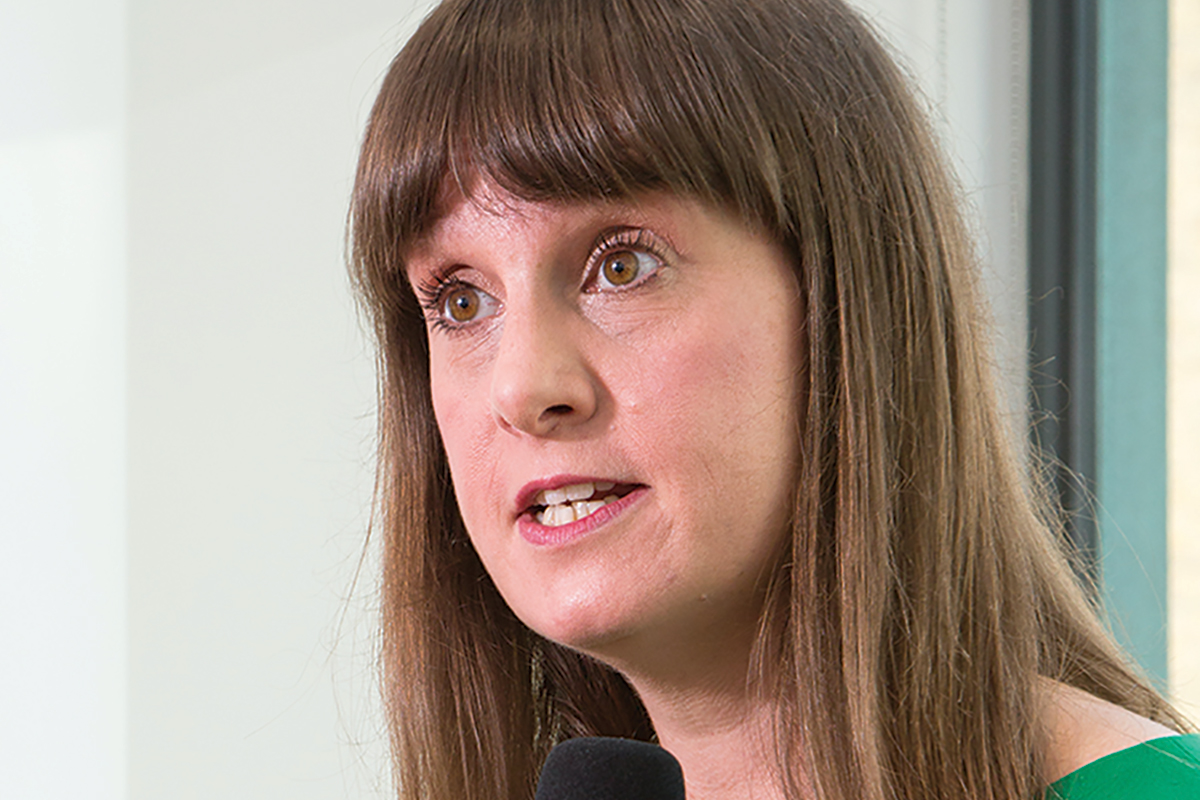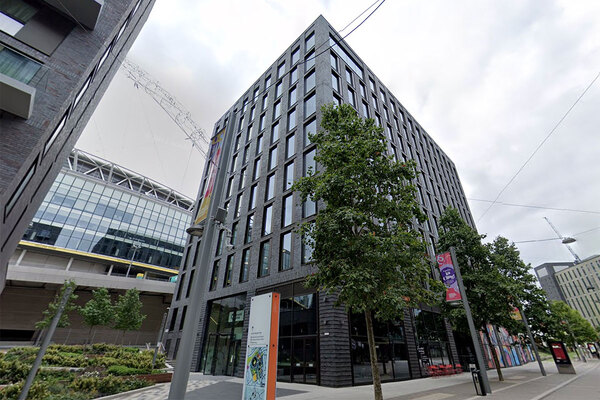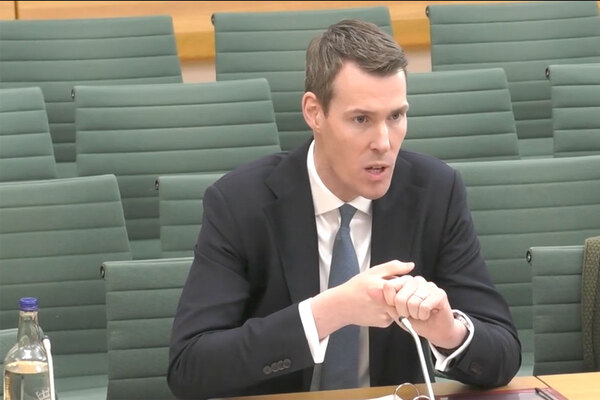Autumn Statement 2022: Jeremy Hunt’s key housing announcements
Inside Housing provides a rundown of the key policy takeaways from this morning’s Autumn Statement.
This morning, Jeremy Hunt gave his maiden budget statement as leader of the Treasury. The chancellor of the exchequer promised a “balanced path to stability” and to get there, said he would need to “take difficult decisions”.
There was a lot for the housing sector to look out for, with promises that the statement would see him announce the government’s decision on social housing rents. In addition, reports had mooted huge investments in housing, while there was the question of whether benefits would rise with inflation.
If you missed Mr Hunt today, here is the Inside Housing news team’s full rundown of the key housing takeaways.
The rent cap
Rumours had swirled around the sector about where the rent cap might fall following a government consultation in the summer.
The government was initially minded to set the cap at 5%, but sources told Inside Housing that the fall-out from the Mini Budget meant all options were back on table.
There was even some concern that there could be a rent freeze with the return of Michael Gove as housing secretary. So the chancellor’s decision today to set the cap at 7% from next April is likely to not only come as a surprise, but also a relief for housing associations – less so for tenants.
Mr Hunt explained that, with the current rate of inflation, as set by the Consumer Price Index (CPI), current proposals could have seen rent hikes of up to 11%. The 7% cap, the government estimates, will save the average tenant in the social rented sector £200 next year. It will also generate an overall saving to the government of around £630m over five years.
The documents alongside the speech confirmed that supported housing providers will be excluded from having to comply with this policy, therefore rents will be allowed to rise by up to CPI + 1% in 2023-24 for this type of accommodation.
The National Housing Federation (NHF) had previously warned that supported housing could become unviable for housing associations if a complete rent freeze, or a 3% cap, was introduced.
In what may come as a relief and a surprise to shared owners, the NHF revealed in a statement after the budget that associations representing 80% of shared owners will cap their rents at 7%. For shared ownership properties, annual rent increases are usually limited to the Retail Prices Index (RPI) plus 0.5%. RPI is currently running higher than CPI (14.2% in October).
Energy
With the war in Ukraine continuing to affect energy supply and, in turn, prices, energy supply and costs were a key part of Mr Hunt’s statement.
The first aspect of this was in the support he has pledged to households dealing with current energy price hikes. Liz Truss, the previous prime minister, vowed in September that energy bills would be capped at £2,500 for households, with the government covering the rest of the bills.
Mr Hunt revealed that he would continue with this energy price guarantee but raise the threshold to £3,000, with the scheme lasting for one more year.
Mr Hunt also focused on energy supply, with announcements of new nuclear power-plant deals and energy-efficiency drives.
He vowed to put an extra £6bn towards improving the energy efficiency of buildings over the next five years. This comes off the back of £6.6bn previously committed by the government. This is expected to take £28bn off the country’s energy bills.
Mr Hunt added that the business and energy secretary will publish further details on energy independence plans and a new energy-efficiency task force shortly.
These plans are expected to include an expansion of home-insulation programmes.
Bloomberg reported on Wednesday that the government plans to invest billions in insulating homes and upgrading boilers in a bid to reduce energy demand.
Benefits
While Mr Hunt repeatedly stressed that his plans were there to increase economic credibility for the country and would result in raised taxes and some spending cuts, he was also keen to stress that there would be compassion in the decisions made.
Key to this was his decision to keep not only the benefit uplift in line with inflation, but also “exceptionally” lift the benefit cap to those levels.
He said that while he had heard some reports that it would not match inflation, these rumours were wrong and would “not be consistent with our commitment to protect the most vulnerable”.
The documents that came after Mr Hunt’s speech, also revealed that the Local Housing Allowance rate would be frozen once again. This means that they haven’t been lifted since the Covid-19 pandemic.
The Department for Work and Pensions uses LHA rates to calculate how much Universal Credit or housing benefit a tenant can get, to pay their rent.
Before being frozen in 2016, LHA rates covered the cheapest 30% of rents in a local area. In response to the COVID-19 pandemic in 2020, LHA rates were restored to the cheapest 30th percentile. However, the rates have been refrozen since then, meaning housing benefit hasn’t kept pace with inflation.
These uplifts mean families on Universal Credit will receive an extra £600 in benefits.
The chancellor also announced that he would be providing an additional £1bn for the Household Support Fund.
The fund was launched in October 2021 amid the cost-of-living crisis, to help struggling households get through the winter. It came after the £20-a-week Universal Credit uplift was cut.
It is used to support households with the cost of essentials, although local authorities have flexibility in addressing local needs.
It was initially expected to end in October 2022, but will now continue until 2024.
Stamp duty cuts
In a slowing housing market, Mr Hunt’s decision to keep the higher threshold for stamp duty will be welcomed by estate agents as well as housing associations with market sale homes in their development programmes.
The raising of the threshold, which was announced as a permanent measure in September’s Mini Budget, effectively acts as a tax cut now.
In September, government plans increased the nil rate for all purchasers of residential property in England and Northern Ireland from £125,000 to £250,000, and for first-time buyers from £300,000 to £425,000. The Autumn Statement documents confirm that this will now be a “temporary SDLT [Stamp Duty Land Tax] reduction”.
Keeping the stamp duty cuts in place will also help counter any anticipated slowdown from the end of the government’s Help to Buy programme, which helped first-time buyers to fund the deposit for a home.
Documents published by the Treasury to accompany the Autumn Statement show that the new plans will generate an extra £180m from stamp duty in 2024/25, with an additional £1.6bn in revenues annually by 2027/28.
Adult social care
With regard to social care, the chancellor has arguably placed a sticking plaster over cracks in the system and the funding needed to match it.
The Dilnot reforms were published over a decade ago, and include plans to raise the threshold of costs before people begin to pay for their care.
Local authorities, which are already struggling to balance the books, had lobbied the chancellor to delay the reforms. Mr Hunt has duly obliged.
By committing to the Dilnot recommendations but delaying their implementation, Mr Hunt has bought himself time and space until the UK economy emerges from its current recession, which was confirmed by the chancellor at the dispatch box.
In total, the Autumn Statement allocated up to £8bn in funding for NHS and adult social care by 2024/25. Of this, £3.3bn is targeted at helping the NHS reduce the number of patients who should be discharged into the care system.
The measures were welcomed by the Local Government Association, which said the government had accepted its ask to allow councils to reallocate funds away from reforms to tackle inflation.
It said: “Councils have always supported the principle of adult social care reforms and want to deliver them effectively, but have warned that underfunded reforms would have exacerbated significant ongoing financial and workforce pressures.
“The government needs to use the delay announced today to learn from the trailblazers to ensure that funding and support is in place for councils and providers to ensure they can be implemented successfully.”
